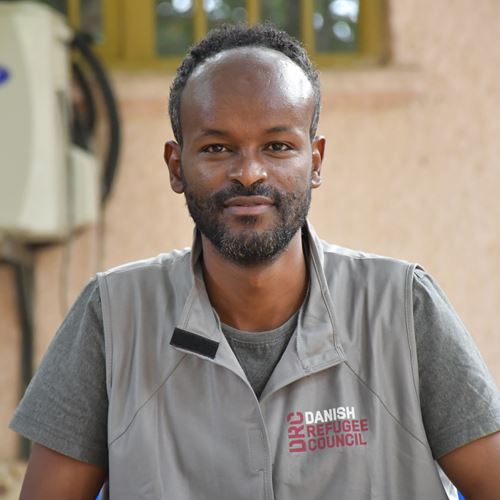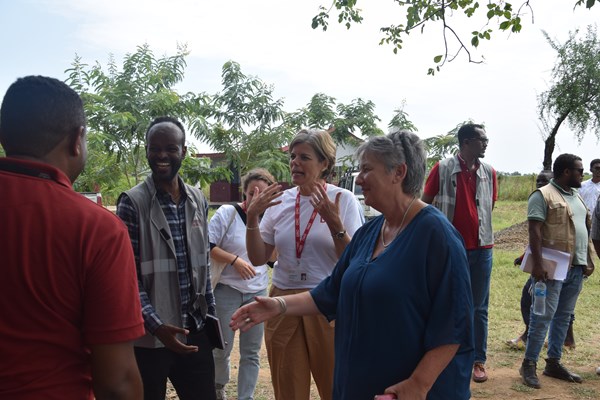What do you like most about your work?
As a humanitarian staff, I enjoy helping people affected by crises. I work with internally displaced people, refugees and asylum seekers. Addressing their needs with my expertise as a member of the DRC team makes me happy. In addition, listening to their concerns and solving them with the available resources gives me relief and satisfaction.
Why did you choose to become a humanitarian worker?
My path into this field was influenced by a friend who worked for the United Nations. His stories about the impact of humanitarian work motivated me to pursue this path. In 2014, I joined the humanitarian community, beginning my journey in the Assossa refugee operation, leaving behind my job as a college teacher.
Describe one life-changing experience as a humanitarian worker.
One of my most transformative experiences was while working in the Assossa refugee camps. I interacted with people from different backgrounds and countries. The challenge arose when I had to communicate with Sudanese refugees who only spoke Arabic. This language barrier made my work incredibly challenging. However, I took it upon myself to learn the Arabic language so that I could effectively communicate with and assist these refugees. The ability to now communicate in Arabic fills me with pride, knowing that I can help these individuals while simultaneously expanding my language skills.
What does World Humanitarian Day mean to you?
This day is crucial as it shines a spotlight on the tireless efforts of aid workers who operate in hard-to-reach areas where armed groups and volatile security situations persist. These brave individuals often sacrifice time with their families and the comfort of home to extend a helping hand to those in need. Recognizing and acknowledging their work on a global scale is essential, and World Humanitarian Day serves as a significant opportunity to highlight their dedication.

